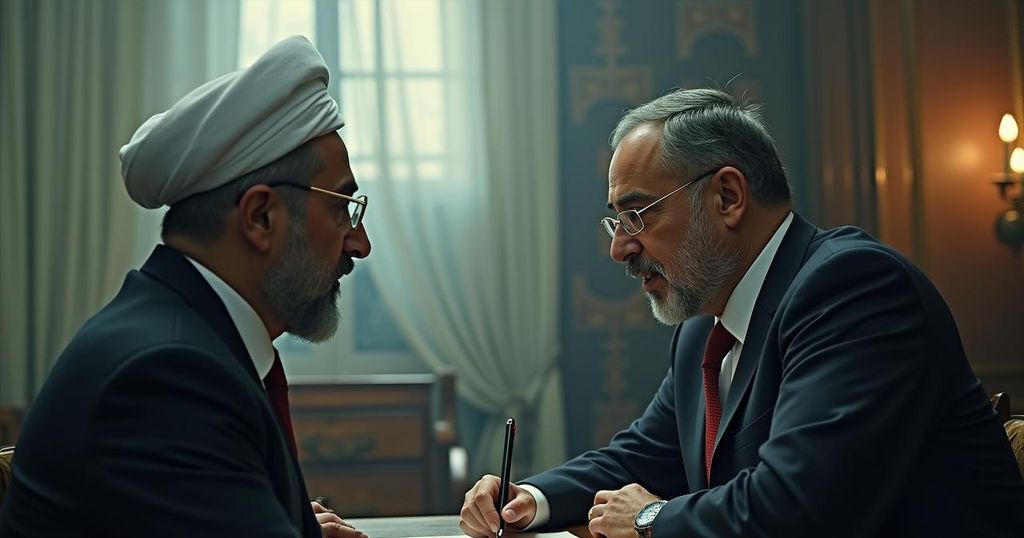Escalating Conflict: Israel Strikes Beirut Amid International Calls for Ceasefire and Strengthened Lebanese Defense
Recent Israeli airstrikes killed 22 people in Beirut and injured 117, aimed at Hezbollah leader Wafiq Safa. UN peacekeepers were also wounded in the attack. The U.S. and France have called for strengthening Lebanon’s military to ensure stability, while Vice President Kamala Harris advocated for a cease-fire amidst escalating violence. In a related development, Iranian military chief Esmail Qaani is under investigation on suspicion of espionage.
On Thursday, a series of airstrikes conducted by the Israeli military resulted in the deaths of 22 individuals and injured 117 in Beirut. The military aims to eliminate Wafiq Safa, a prominent Hezbollah leader, who was not present during the attacks that completely destroyed several buildings. Furthermore, Israeli fire targeted the UN peacekeeping headquarters in Naqoura, causing injuries to two peacekeepers who required hospitalization. Relations between Israeli forces and the United Nations Interim Force in Lebanon (UNIFIL) have deteriorated since Israel initiated a ground invasion on October 1, a move that UN peacekeepers obstructed at the Lebanese border. This aggression has drawn extensive international condemnation, prompting even the United States to advocate for a cease-fire to avert potential escalation into a broader conflict involving Iran and Lebanon. In ongoing hostilities since October 7, over 2,000 fatalities have been reported in Lebanon alongside massive displacement. Recent figures indicate that at least 10,212 individuals have sustained injuries. Concurrently, similar airstrikes have targeted Gaza, with Palestinian authorities reporting numerous strikes, including one that struck a school shelter in the Gaza Strip, resulting in the deaths of 27 people, including children and women. On this front, France and the United States have publicly endorsed the UN’s call for strengthening the Lebanese army to restore peace along Israel’s borders. Deputy U.S. Ambassador Robert Wood emphasized the necessity of reinforcing Lebanon’s legitimate security forces to bring stability. He stated, “The solution to this crisis is not a weaker Lebanon. It is a strong and truly sovereign Lebanon, protected by a legitimate security force, embodied in the Lebanese Armed Forces.” U.S. Vice President Kamala Harris has also voiced the need for de-escalation in the Middle East, advocating for a cease-fire during a media interaction. Discussions of such a cease-fire, however, have reportedly broken down amidst ongoing hostilities. Additionally, Iranian military chief Brigadier Esmail Qaani is being interrogated under suspicion of espionage for Israeli forces. Following the deaths of prominent Hezbollah leaders, including Hassan Nasrallah, Qaani, who has been unaccounted for, is currently under house arrest while investigations continue. In summary, Israeli airstrikes have escalated tensions in Beirut and Gaza, prompting international calls for a cease-fire and renewed focus on bolstering Lebanon’s military capabilities to maintain stability in the region. The interrogation of Iranian military leaders further complicates the already volatile situation.
The ongoing conflict between Iran and Israel has intensified in recent months, particularly following Israel’s aggressive military actions aimed at Hezbollah in Lebanon and Hamas in Gaza. The backdrop of this conflict includes a series of airstrikes targeting supposed militant leaders and installations, leading to considerable loss of life and displacement in both Lebanon and Gaza. Moreover, tensions between Israeli forces and UN peacekeeping units have risen, particularly given recent Israeli incursions. International responses have predominantly leaned towards calls for cessation of hostilities and support for strengthening Lebanese security institutions to foster stability along its borders
To conclude, the current state of the Iran-Israel conflict underscores a significant humanitarian crisis characterized by extensive casualties in Lebanon and Gaza. International community efforts focus on de-escalation and support for Lebanon’s military, while ongoing investigations into espionage within Iranian leadership compounds the complexity. The situation remains precarious as military actions and diplomatic efforts continue to unfold.
Original Source: www.hindustantimes.com




Post Comment